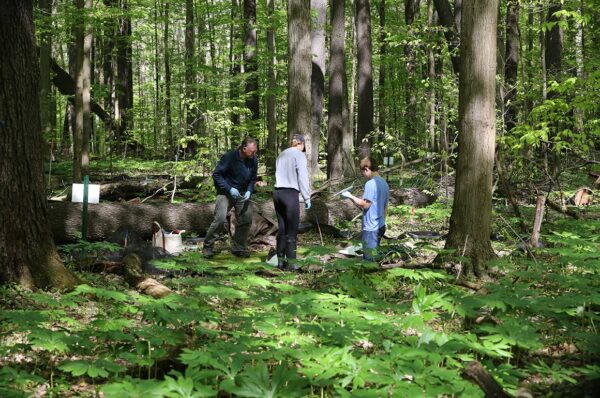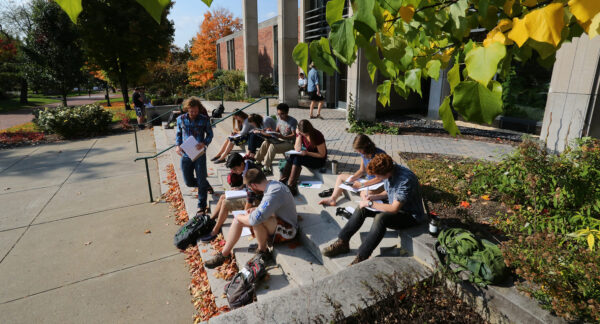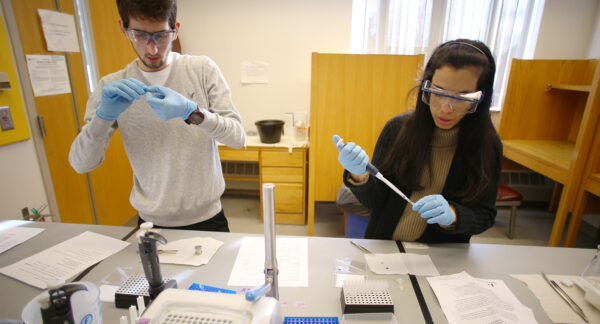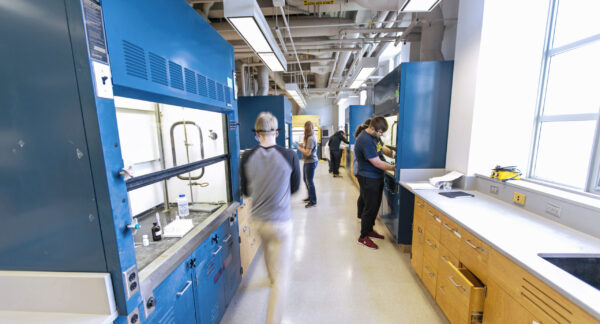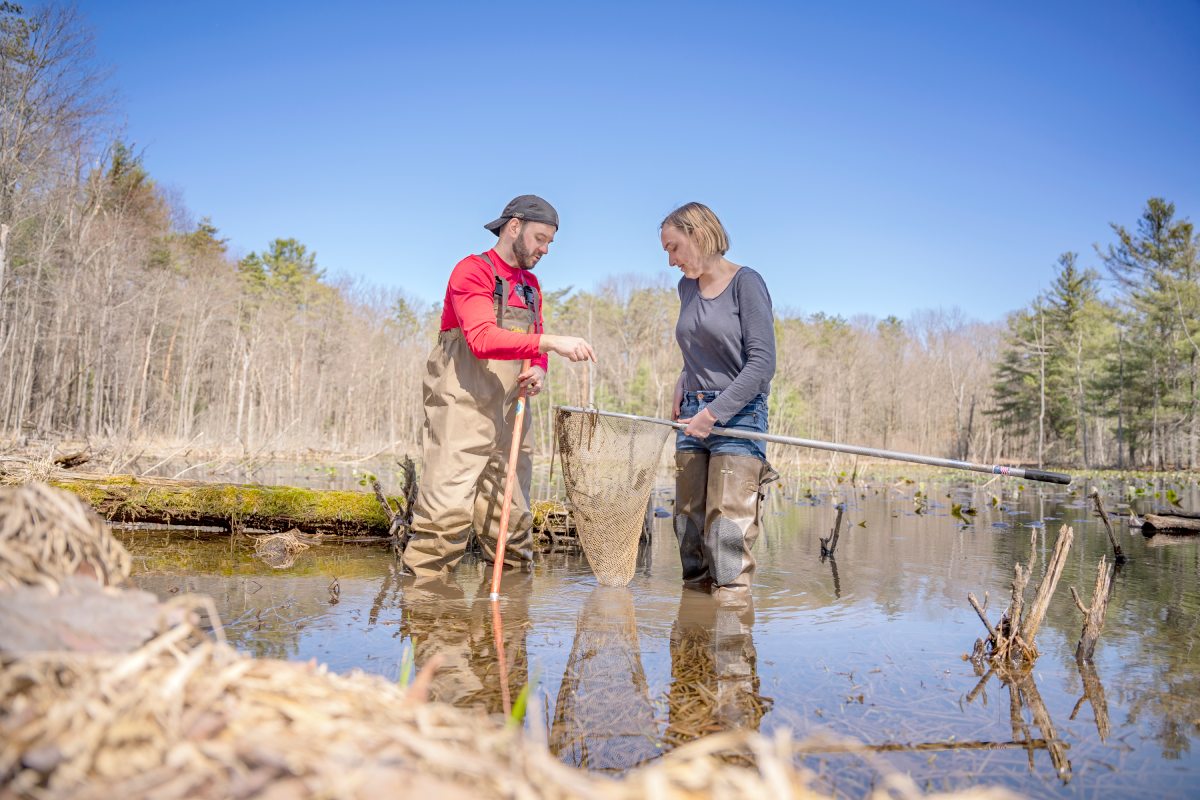
Biology
Mathematics and Natural Sciences
Why Major in Biology at Allegheny College
Study the astonishing variety, and complexity, of living things on Earth. As an Allegheny biology student, you’ll prepare for your future by applying scientific methods learned in the classroom to research in the lab and the field.
Unusual Combinations
Students often combine Biology with:
See how our Biology faculty mentor and empower students to become leaders in the health professions, research, education, sustainability, and other fields.
Division
- Mathematics and Natural Sciences
Program Type
- Major
- Minor
Number of Credits
58 for major28 for minorWhere Biology Alumni Work Today
Aquatic Biologist and Principal
Bear Creek Environmental
Mary K. Nealson ’84
Senior Clinical Affairs Specialist
SPR Therapeutics, LLC
Tina Patitucci Lechman ’92
Research Associate
Ohio State Agricultural Research and Development Center
Laura Gutierrez Chapin ’02
Plastic Surgeon and Assistant Professor
M.D. Anderson Cancer Center at the University of Texas
Alexander F. Mericli, M.D. ’05
Physical Therapist
Encompass Health
Sarah Kuhn ’06
Physician Assistant
ERMI
Jessica Lepore ’09
Senior Health Policy Advisor
U.S. Senate
Garrett Devenney ’16
Physician Assistant & Public Health Graduate Student
Arcadia University
Brittany Imel ’19
Ph.D. Student
Virginia Tech
Grace O’Malley ’18
The faculty was incredible … a group of thoughtful and supportive people who cared very deeply about teaching and student development. I saw that the unknown path was not something to be scared of and actually might lead to something very interesting.
Your Four-Year Journey
Year 1: Understanding
Your first year may include foundational coursework in biology, chemistry, or math. Introductory biology courses explore organismal physiology, ecology, genetics, and molecular biology, and emphasize the ability to interpret experiments and data that have led biologists to greater understanding of the diversity and complexity of living organisms.
Year 2: New Approaches
In your second year, you will complete any remaining foundational coursework in biology, chemistry, or math and may begin more advanced biology coursework. You’ll also take Investigative Approaches in Biology, a course with an emphasis on independent and cooperative laboratory or field work and on writing and speaking for a biologically-focused audience.
Featured courses:
Year 3: Delving Deeper
Your third year is when you will take your Junior Seminar, which explores in-depth a specialized topic in biology, as well as experimental design and engaging with the scientific literature. You will take advanced courses that can include cell and molecular biology, genetics, organismal physiology, microbiology, anatomy, ecology, and evolution. You also may take courses in related sciences, such as chemistry, physics, or computer science, that complement your biology training and enhance your ability to apply multiple perspectives.
Year 4: The Comp
It’s your final year – time to prepare and defend a research proposal on a topic interesting to you. With your advisor’s guidance, you’ll then work through the year to complete and present that research. You’ll also finish your advanced biology and related science courses before you graduate.
Featured Courses
Faculty and Staff
Assistant Professor
Ph.D., Ecology and Evolutionary Biology, Cornell University; B.S., Animal Behavior, Millersville University of Pennsylvania
Email: jhoutz@allegheny.edu
Phone: 814-332-2970
Email: thumphre@allegheny.edu
Phone: 814-332-2967
Featured News

Dana D’Amico ’13: Science Writing Launched Her Career
Dana D’Amico has always liked science and writing. When she arrived at Allegheny College in 2009, she had no idea that the student-run newspaper, The Campus would give her the opportunity to excel at both, laying the foundation for a successful career in science marketing and communications.



